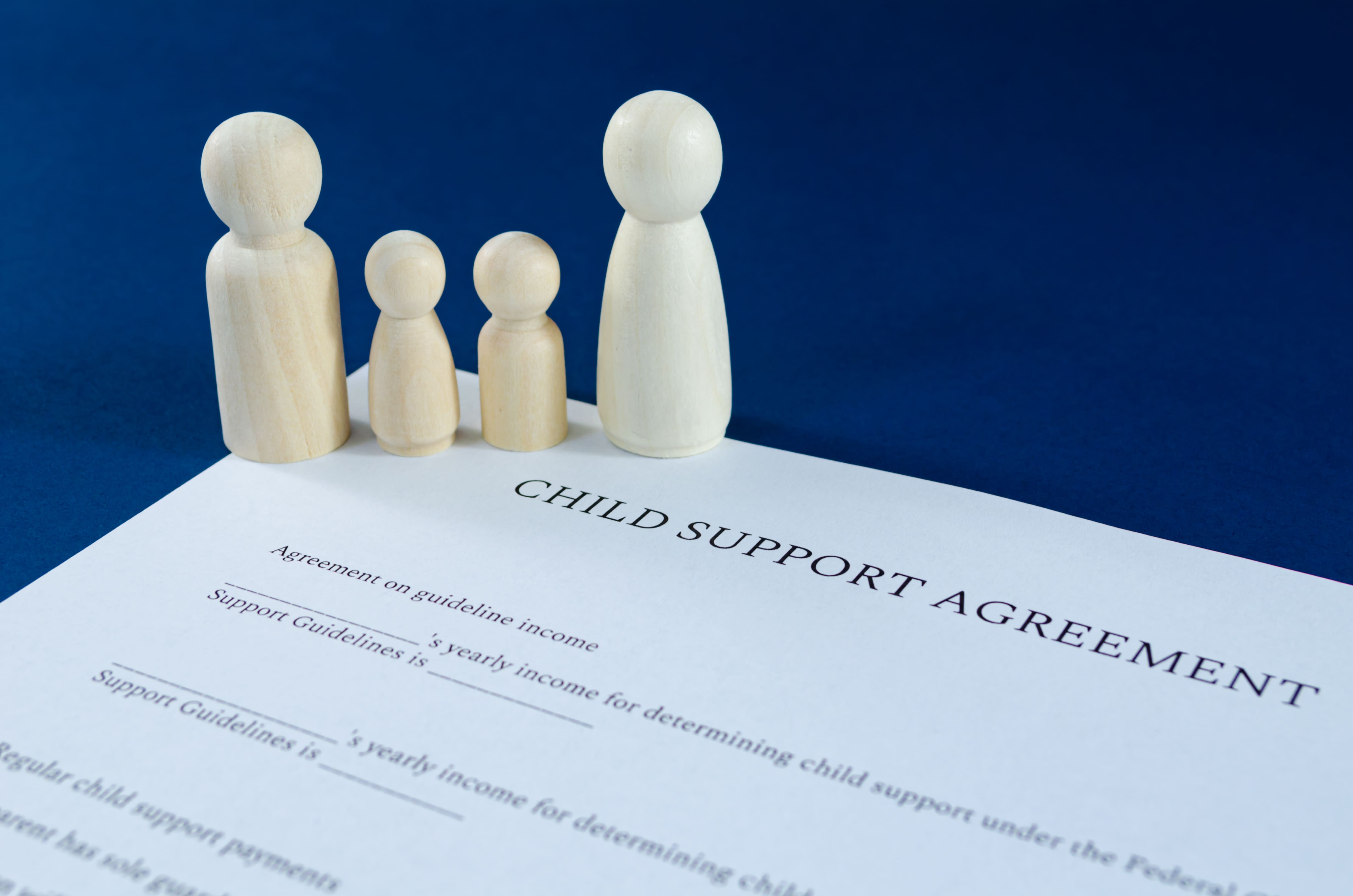Алименты – это денежные выплаты, направленные на содержание родителями детей, которые не достигли совершеннолетия. В Беларуси обязанность родителей обеспечивать своих детей закреплена в законодательстве и не зависит от их семейного положения. В случае разногласий между родителями алименты можно взыскать в судебном порядке.
Размер алиментов определяется либо в процентном соотношении к доходу родителя, либо в фиксированной сумме. Законодательство также предусматривает минимальные размеры выплат, а за уклонение от их уплаты может наступить административная и уголовная ответственность.
Разобраться во всех нюансах алиментных обязательств, правильно оформить документы и защитить права ребенка поможет опытный адвокат. Мы рекомендуем обратиться к квалифицированному юристу, который обеспечит грамотное ведение дела и представление ваших интересов.
Понятие и значение алиментов
Алименты – это обязательные платежи, которые один из родителей выплачивает на содержание своего несовершеннолетнего ребенка. Данные выплаты направлены на обеспечение ребенка всем необходимым для его полноценного развития, включая питание, одежду, медицинское обслуживание, образование и другие потребности.
Обязанность родителей содержать своих детей не зависит от их семейного положения. Даже если родители разведены или не состояли в браке, их финансовая ответственность перед ребенком остается неизменной. Алименты могут выплачиваться:
- Добровольно, на основании соглашения между родителями.
- Взыскиваться в судебном порядке, если один из родителей уклоняется от своих обязанностей.
Размер алиментов, как правило, рассчитывается в процентном соотношении к доходу родителя, однако в некоторых случаях суд может установить фиксированную сумму выплат, особенно если плательщик не имеет стабильного дохода.
Законодательная база, которая регулирует выплату алиментов в Беларуси
Основные нормы, регулирующие алиментные обязательства в Республике Беларусь, содержатся в Кодексе о браке и семье Республики Беларусь. В частности, Кодекс определяет, что родители обязаны содержать своих несовершеннолетних детей.
Кодекс также устанавливает порядок взыскания алиментов: если родитель уклоняется от их уплаты, второй родитель или законный представитель ребенка может обратиться в суд.
Кроме того, Кодекс определяет размеры алиментов, которые могут составлять (в процентах от дохода родителя ежемесячно):
- 25% от дохода на одного ребенка.
- 33% – на двоих детей.
- 50% – на троих и более детей.
Минимальные размеры алиментов привязаны к бюджету прожиточного минимума (БПМ) и не могут быть ниже установленного уровня.
При возникновении споров по вопросам алиментов рекомендуется обратиться к опытному адвокату, который поможет разобраться в законодательных нюансах, подготовить документы и обеспечить защиту прав ребенка.
Минимальный размер алиментов в Беларуси
Минимальный размер алиментов зависит от количества детей и определяется в процентном отношении к заработку и (или) иному доходу родителей:
- На одного ребенка — 25%.
- На двух детей — 33%.
- На трех и более детей — 50%.
При этом для трудоспособных родителей, которые не имеют постоянного дохода, установлен минимальный размер алиментов, который составляет:
- На одного ребенка — не менее 50% бюджета прожиточного минимума (БПМ).
- На двух детей — не менее 75% БПМ.
- На трех и более детей — не менее 100% БПМ.
С 1 февраля 2025 года БПМ установлен в размере 447,64 рубля. Соответственно, минимальные выплаты на детей для трудоспособных родителей составляют:
- На одного ребенка — 223,82 рубля.
- На двух детей — 335,73 рубля.
- На трех и более детей — 447,64 рубля.
В случае, если родитель не имеет постоянного дохода или его заработок нерегулярен, алименты можно взыскать в твердой денежной сумме или в сумме, соответствующей определенному количеству базовых величин, подлежащей уплате ежемесячно. При уклонении от уплаты алиментов законодательством предусмотрена ответственность.
Чтобы обеспечить защиту прав и интересов ребенка, рекомендуется обратиться за консультацией к опытному адвокату, который поможет разобраться в нюансах законодательства и обеспечить правильное оформление всех необходимых документов.
Ответственность за уклонение от выполнения обязанностей по содержанию детей
Родители обязаны обеспечивать своих несовершеннолетних детей и нуждающихся в поддержке нетрудоспособных совершеннолетних. Минимальный размер обеспечения — это размер алиментов, который определен правовыми нормами.
Если родители не исполняют свои обязанности по содержанию, то алименты можно взыскать в судебном порядке.
Ответственность за неуплату алиментов по добровольным соглашениям
Когда возникла задолженность по алиментам, которые уплачивают по Соглашению о детях, Соглашению об уплате алиментов или Брачному договору, родитель, по вине которого возник долг, несет ответственность, предусмотренную условиями соглашений или договора.
Ответственность за неуплату алиментов по судебному постановлению
Если задолженность по алиментам образовалась из-за невыплаты по судебному постановлению, должник по алиментам должен уплатить получателю алиментов неустойку в размере 0,3 процента от суммы задолженности за каждый день просрочки. Неустойку взыскивают в том же порядке, что и алименты.
Получатель алиментов также имеет право требовать возмещение убытков, причиненных задержкой в уплате алиментов, от лица, обязанного их выплачивать по суду, на сумму, не покрытую неустойкой.
Уголовная ответственность за неуплату алиментов
В Республике Беларусь за уклонение от заботы о детях предусмотрена уголовная ответственность:
- Родителей могут привлечь к ответственности, если более трех месяцев в году они не платят алименты по решению суда на содержание несовершеннолетних или совершеннолетних, которые нетрудоспособны и нуждаются в материальной помощи.
- Наказания за это могут включать общественные работы, исправительные работы до двух лет, арест, ограничение свободы до трех лет, а также лишение свободы на срок до одного года.
- Для родителей, которые уже привлекались к уголовной ответственности за уклонение от содержания детей, установлена более строгая ответственность: от исправительных работ на срок от одного до двух лет до лишения свободы на срок до двух лет.
Порядок уплаты алиментов
Рассмотрим особенности добровольной уплаты алиментов и взыскания алиментов в суде.
Добровольное соглашение между родителями
Оптимальный способ урегулирования вопроса о выплате алиментов – заключение добровольного соглашения между родителями. Вопросы уплаты алиментов можно урегулировать в следующих добровольных соглашениях:
- Брачный договор.
- Соглашение о детях.
- Соглашение о содержании своих несовершеннолетних и (или) нуждающихся в помощи нетрудоспособных совершеннолетних детей (далее – Соглашение об уплате алиментов).
Такие документы составляют в письменной форме и заверяют у нотариуса в любой нотариальной конторе Беларуси. В Брачном договоре, соглашениях родители самостоятельно определяют порядок, размер и способ выплат алиментов, что позволяет избежать судебных разбирательств.
Главное преимущество соглашений – их гибкость: стороны могут установить не только ежемесячные выплаты, но и, например, передачу имущества в счет алиментов, оплату дополнительных расходов на ребенка (медицинское лечение, образование, кружки и секции).
В брачном договоре, соглашениях можно предусматривать размер алиментов, увеличенный по сравнению с минимальным, который установлен правовыми нормами.
Важно помнить, что соглашение не должно ухудшать положение ребенка по сравнению с минимальными гарантиями, установленными законом. В ином случае оно может быть признано недействительным.
Взыскание алиментов
Получите профессиональную помощь во взыскании алиментов с гражданина Беларуси с полным юридическим сопровождением!
Судебный порядок взыскания алиментов
Если один из родителей уклоняется от исполнения обязанностей по содержанию ребенка и договориться не удается, алименты можно взыскать через суд. В этом случае второй родитель (или законный представитель ребенка) может подать исковое заявление о взыскании алиментов.
Судебное решение об алиментах является обязательным для исполнения, а уклонение от его выполнения влечет правовые последствия, вплоть до привлечения к административной или уголовной ответственности.
Необходимые документы и процедура подачи заявления в суд
Для обращения в суд с иском о взыскании алиментов необходимо подготовить:
- Паспорт или иной документ, удостоверяющий личность истца (истец — это взыскатель алиментов).
- Свидетельство о рождении ребенка.
- Документы, подтверждающие совместное проживание ребенка с истцом.
- Справки о доходах (если есть).
- Проект искового заявления.
Иск подают в суд по месту жительства ответчика или истца. После рассмотрения дела суд принимает решение, на основании которого выдает исполнительный лист. Этот документ истец или суд направляет в службу судебных исполнителей или напрямую в бухгалтерию работодателя должника для удержания алиментов из его заработной платы.
Процесс взыскания алиментов может сопровождаться юридическими сложностями, особенно если ответчик уклоняется от уплаты или не имеет официального дохода. Чтобы защитить свои права и права ребенка, рекомендуется обратиться к опытному адвокату, который поможет подготовить документы, представить интересы в суде и проконтролировать исполнение судебного решения.
Форма и способы уплаты алиментов
Правовые нормы допускают несколько способов исполнения алиментных обязательств. Выбор формы зависит от договоренности между родителями либо форму уплаты определяет суд в зависимости от обстоятельств дела.
Удержание алиментов из заработной платы
Наиболее распространенный способ уплаты алиментов – удержание из заработной платы или иного регулярного дохода плательщика. Если алименты взыскиваются в судебном порядке, суд выносит решение, на основании которого выдается исполнительный лист. Этот документ передается в бухгалтерию работодателя должника, который ежемесячно удерживает установленную сумму из его дохода и перечисляет ее получателю.
Удержание может производиться не только из официальной заработной платы, но и из других видов доходов, например:
- Пенсий и пособий (за исключением некоторых социальных выплат).
- Доходов от предпринимательской деятельности.
- Гонораров, премий и других выплат.
Уплата алиментов в твердой денежной сумме
В случаях, когда у плательщика нет постоянного дохода или его заработок носит нерегулярный характер (например, работа по гражданско-правовым договорам, самозанятость), суд может назначить алименты в твердой денежной сумме. Это фиксированная сумма, которую необходимо выплачивать ежемесячно или единожды.
Также суд может установить алименты в размере, эквивалентном определенному количеству базовых величин. Такой порядок обеспечивает стабильность выплат и защищает интересы ребенка. В случае изменения размера базовой величины алименты индексируются.
Передача имущества в счет алиментов
Допускается возможность уплаты алиментов путем передачи имущества. Такой вариант реализуется только на основании нотариального Соглашения об уплате алиментов между родителями. В счет алиментов могут быть переданы:
- Недвижимость (например, квартира, доля в квартире, земельный участок) или доля в паве собственности на жилое помещение.
- Транспортные средства.
- Иное ценное имущество (например, ценные бумаги, доля в бизнесе).
Имущество можно передавать в том числе в счет уплаты алиментов на будущее время.
Передача имущества должна соответствовать интересам ребенка и быть эквивалентной сумме алиментных обязательств.
В Соглашении об уплате алиментов можно прописать несколько способов уплаты алиментов.
Выбор формы уплаты алиментов зависит от конкретной ситуации. Чтобы избежать споров и защитить права ребенка, рекомендуется проконсультироваться с адвокатом, который подскажет оптимальный вариант, оформит необходимые документы и, при необходимости, представит ваши интересы в суде.
Изменение размера алиментов
В Беларуси есть возможность изменения размера алиментов при наличии определенных обстоятельств. Основные основания для этого включают:
1. Наличие других несовершеннолетних детей у плательщика алиментов
Если у родителя, обязанного выплачивать алименты, имеются другие несовершеннолетние дети, и при взыскании алиментов в установленном размере они оказываются менее обеспеченными материально, чем дети, получающие алименты, суд может уменьшить размер алиментов.
2. Инвалидность плательщика
Если родитель, с которого взыскиваются алименты, является инвалидом I или II группы, суд вправе уменьшить размер алиментов или освободить его от их уплаты.
3. Изменение материального или семейного положения
Существенное ухудшение материального состояния плательщика алиментов, например, потеря работы или снижение доходов, может служить основанием для пересмотра размера алиментов.
4. Иные уважительные причины
К таким причинам могут относиться недостаточная материальная обеспеченность родителя, плохое состояние здоровья его или членов его семьи, наличие иждивенцев, отсутствие жилья и другие объективные обстоятельства.
Порядок обращения в суд для пересмотра размера алиментов
Для изменения размера алиментов заинтересованная сторона должна обратиться в суд с исковым заявлением. Это может быть как плательщик алиментов, стремящийся уменьшить их размер, так и получатель, желающий увеличить сумму выплат. Иск подается в суд по месту жительства ответчика или истца.
Пошаговый рядок действий включает:
- Шаг 1. Подготовка искового заявления.
В заявлении необходимо указать обстоятельства, послужившие основанием для пересмотра размера алиментов, и приложить подтверждающие документы (справки о доходах, медицинские заключения и т.д.).
- Шаг 2. Подача заявления в суд
Исковое заявление подают в суд по месту жительства ответчика или истца. При этом необходимо оплатить государственную пошлину, размер которой определяется исходя из суммы, на которую уменьшаются или увеличиваются алименты, но не более чем за один год.
- Шаг 3. Рассмотрение дела судом
Суд рассматривает представленные доказательства и выносит решение об изменении размера алиментов или об отказе в удовлетворении иска.
Важно отметить, что изменение размера алиментов возможно только в судебном порядке, если они были взысканы на основании судебного постановления. В случае добровольного соглашения об уплате алиментов размер алиментов изменяется также в добровольном порядке: в соглашения вносят изменения или заключают новое соглашение и заверяют нотариально.
При подготовке и подаче искового заявления, а также для представления интересов в суде рекомендуется обратиться к опытному адвокату. Квалифицированный юрист поможет грамотно оформить документы, учесть все нюансы дела и обеспечить защиту ваших прав в судебном процессе.
Заключение
Алименты – это важный правовой механизм, обеспечивающий финансовую поддержку ребенка со стороны родителей. В Беларуси законодательство четко регулирует вопросы их взыскания, формы и способы уплаты, а также возможность изменения установленного размера выплат.
Выплата алиментов может осуществляться добровольно – на основании соглашения между родителями, либо в судебном порядке, если один из родителей уклоняется от своих обязательств. В случае изменения материального положения сторон или других уважительных причин размер алиментов может быть пересмотрен судом.
Чтобы избежать юридических ошибок и максимально защитить интересы ребенка, важно правильно оформить документы и учитывать все нюансы законодательства. Мы рекомендуем обращаться к опытному адвокату, который поможет вам разобраться во всех правовых аспектах, подготовить необходимые документы и представлять ваши интересы в суде. Квалифицированная юридическая помощь – это залог успешного разрешения алиментных споров и обеспечения достойного будущего для ребенка.
Свяжитесь с нами
Если у Вас возникли вопросы, связанные с семейным правом в Беларуси — мы будем рады Вам помочь! Наш многолетний опыт поможет вам разрешить любые споры в этой области.
- +37529142-27-19 (WhatsApp, Viber, Telegram)
- info@ambylegal.by





